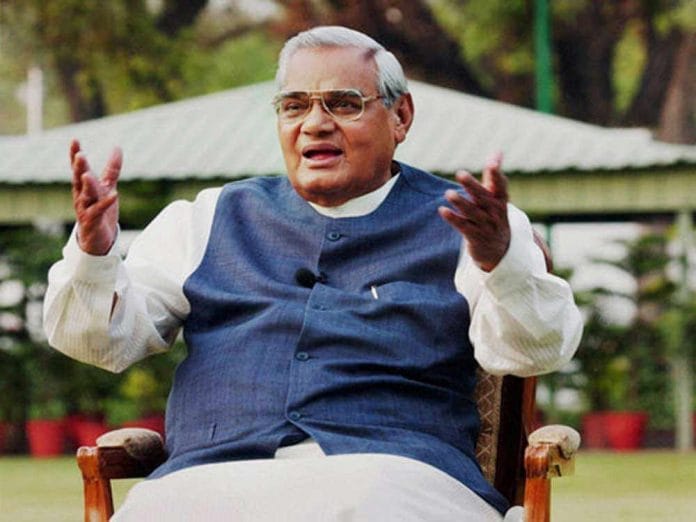A day before the Pokhran test, 5 Race Course Road was converted into a secure space with direct telecommunications links with Pokhran.
A general assumption among people is that you campaign in poetry and govern in prose. The realities of office, the sense of responsibility and the art of compromise can curtail many a promise made on the campaign trail.
India’s first official nuclear tests on 11 May 1998 caught the strategic community napping. Analysts in India and abroad assumed that once he assumes office, former Prime Minister Atal Bihari Vajpayee would not follow through on his long-articulated argument that India needed to develop nuclear weapons to guarantee security from adventuresome neighbours. They assumed that Vajpayee would hesitate since the world was not likely to take kindly to it.
But soon after Vajpayee formed his minority government in May 1996, he took the first steps towards testing.
One evening, he asked me to locate Dr A.P.J. Abdul Kalam. Earlier that day, he had called outgoing Prime Minister Narasimha Rao, who briefed him about his earlier attempts to carry out the tests in 1995. That attempt had to be aborted after American satellites had picked up tell-tale signs of preparations at Pokhran.
New to the top echelons of government, it was 2.30 am when I woke Dr Kalam up at a DRDO guest house in Kolkata and advised him to take the first flight out early morning. Which he did. Unfortunately, the time required to complete the preparations was not available so no further action could be taken. Vajpayee’s government fell in just 13 days.
The 1998 swearing-in was different, a majority coalition government formed after joint contesting by pre-poll allies. This time, there would be no hitch.
Contrary to popular imagination, Prime Ministers do not live in 7 Race Course Road (now Lok Kalyan Marg), which works as the office only. Prime Ministers live in either 3 or 5 Race Course Road. Vajpayee lived at 3 Race Course Road.
But a day before the test, ‘5 RCR’ was converted into a secure space with direct telecommunications links with Pokhran. A few days earlier, the top tier of the government (ministers L. K. Advani, George Fernandes, and Jaswant Singh) and then the three service chiefs had been briefed. The entire exercise was conducted by the Principal Secretary Brajesh Mishra at that time to ensure confidentiality. Incidentally, contrary to popular lore, Brajesh Mishra always briefed Vajpayee and took his approval, and did not act independently.
Then, on the day of the test, strong winds delayed the tests, but there was no looking back. The team (A.B. Vajpayee, L.K. Advani, George Fernandes, Jaswant Singh, Brajesh Mishra) joined by the political adviser Pramod Mahajan, waited at 5 RCR for the news. Those were tense moments.
All of them sat still on the long dining table. They were very quiet. It was a long wait. Nobody said anything to each other. Maybe because of the old Indian habit that you don’t talk about something until it happens. Otherwise you may jinx it.
When the news finally came, the effect was electric. There was so much joy, it seemed most unreal.
No, there was no jumping in joy or back-slapping each other. There was a visible sense of relief. There were a lot of tears in that room that day. There was obviously that ‘we have done it’ confidence. But Vajpayee’s face emitted a feeling of sombre responsibility.
Immediately afterward, I got down to drafting the statement about the tests with Vajpayee. It was a very simple statement of not more than two to three lines.
What next? Pramod Mahajan, ever the master of the drama, suggested a press briefing on the lawns of 7 RCR. Only a single-seated podium was placed with the national flag placed next to it.
The Prime Minister read out a small statement in Hindi and English. We stood far away, at an angle, so that all the frontal shots only captured Vajpayee in the frame. However, some photographers were standing on the sides and many papers carried the shot, which had Pramod Mahajan and I standing in the corner of the frame, laughing. None of the ministers were present there.
Why did the analysts, including long-term watchers of the BJP and Vajpayee, get it so wrong? Because they did not understand that for Vajpayee, nuclear weapons security for India is an article of faith and not a slogan.
Shakti Sinha is Director, Nehru Memorial Museum & Library, New Delhi. He was private secretary to former Prime Minister Atal Bihari Vajpayee between 1996 and 1999.






